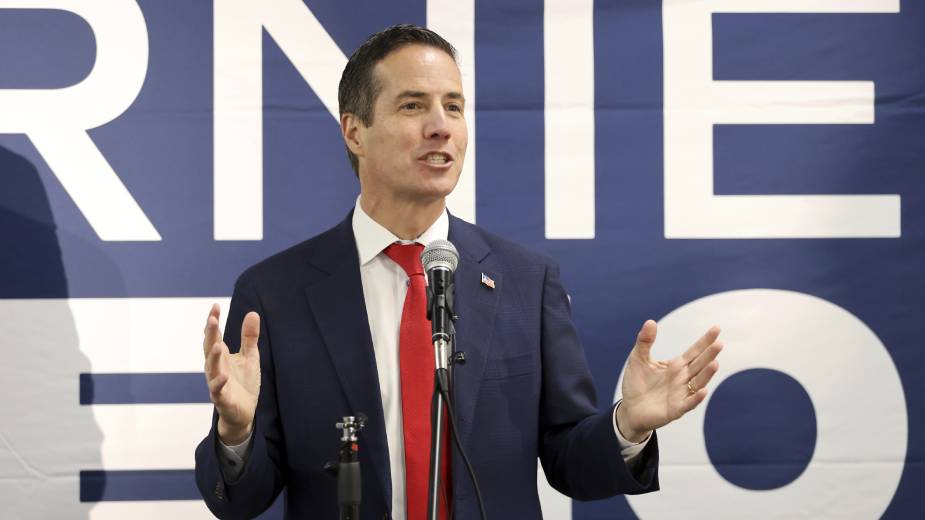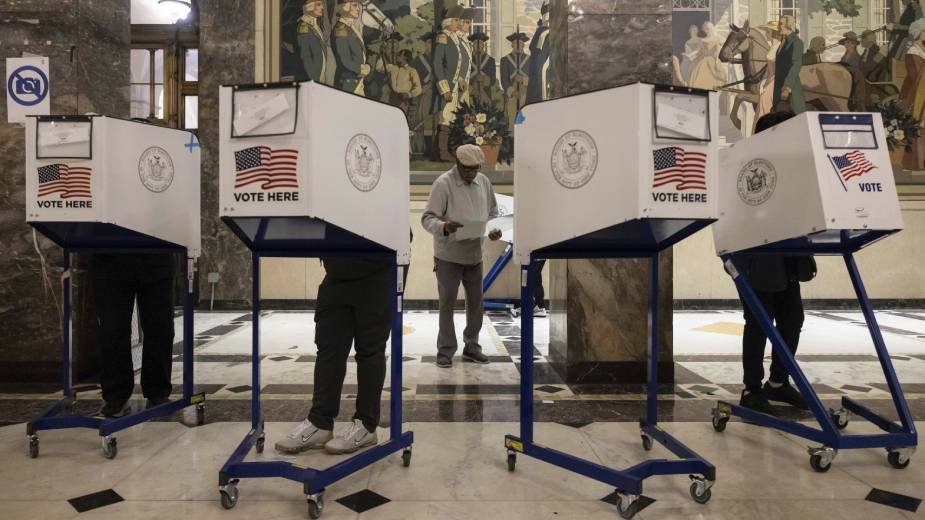Lawmakers Split on Health Care Bill House Passed
YOUNGSTOWN, Ohio – U.S. Rep. Tim Ryan decried the American Health Care Act in advance of today’s vote, and questioned whether the Senate will even take up the narrowly approved legislation.
Around 2:20 p.m. the House of Representatives voted 217 to 213 to pass the measure intended to replace for the Affordable Care Act, President Barack Obama’s signature domestic achievement, also known as Obamacare.
Twenty Republicans joined 193 Democrats to vote “No.” Passage was a priority for GOP House leadership and President Donald Trump.
“By all accounts, this is going to be terrible for the people in Ohio. We have the 2.7 million people in Ohio who have pre-existing conditions and under this bill they’re going to get punished for that,” Ryan, D-13 Ohio, said during a conference call with reporters before this afternoon’s vote.
Republicans needed to act to free up revenues for the tax cut that they want to enact later in the year, he said. “But that doesn’t happen unless they actually pass a bill through the Senate,” he added.
Whether the Senate takes up the legislation to improve it or just let it die a “slow death” by not acting on it “will be interesting to see,” he said. U.S. Sen. Rob Portman, he reported, “sent signals” that the current bill “is a blow” to many Ohioans with pre-existing conditions and those aided by the Medicaid program, which would be cut by $800 billion under the House version, and coverage of mental health issues and opiate addiction, for example.
“That’s a signal that there’s a lot of senators, even Republican senators, that are very uncomfortable with the current state of the health care bill,” Ryan said.
The congressman also criticized the removal of caps that now allow insurers to charge seniors up to five times what they charge a young, healthy individual and the dismantling of the essential benefits package that covers items such as prenatal care, drug treatment and mental illness, “which is going to drive up costs for everybody,” he said. The House bill provides only what he describes as “a pittance” to a high-risk pool for people with preexisting conditions.
In addition, he criticized Republicans for failing to reach across the aisle and work with Democrats to improve Obamacare. “It’s not perfect — nothing in the world is – but there were a lot of good things in there,” he said, “Let’s keep what’s in there that’s working that was helping people and then let’s fix the things that need to be fixed.”
In a statement issued after the vote, Ryan blasted the legislation as “an absolute betrayal of everything that we stand for as Americans” and called on the Senate to reject it.
House Speaker Paul Ryan, a Wisconsin Republican, said before the vote that it represented a “fundamental and urgent choice” between continuing the status quo under Obamacare and returning power from Washington to the states, allowing insurance companies to compete and putting patients – not bureaucrats – at the center of the system.
“This bill delivers on the promises we have made to the American People,” the speaker of the House said. “Many of us are here because we pledged to cast this vote.”
Statements by both senators from Ohio – Portman and Sherrod Brown – cast some doubt on the fate of the House bill as passed.
Portman called the status quo on health care “unsustainable,” noted that only one insurance company operates in more than a third of Ohio’s counties, and that changes must be made in a way that doesn’t leave people behind.
“I’ve already made clear that I don’t support the House bill as currently constructed because I continue to have concerns that this bill does not do enough to protect Ohio’s Medicaid expansion population, especially those who are receiving treatment for heroin and prescription drug abuse,” he said. “We have an opioid crisis in this country, and I’m going to continue to work with my colleagues on solutions that ensure that those who are impacted by this epidemic can continue to receive treatment.”
Brown, a Democrat, warned that as many as 900,000 Ohioans could lose health care coverage under the House legislation, including more than 200,000 Ohioans receiving treatment for opioid addiction. The plan “weakens protections for those living with pre-existing conditions, and does nothing to lower costs or improve care for Ohioans,” he said.
“This bill is heartless, it is bad for Ohio, and it will leave real Ohioans struggling to afford care,” he said. “Instead of taking care away, we should be working to reduce the price of prescription drugs and improve care for everyone.”
U.S. Reps. Bill Johnson and Mike Kelly, who voted in favor of the legislation, praised its passage.
“Today, the House of Representatives took a major step toward keeping our promise with the American people to repeal and replace Obamacare,” Johnson, R-6 Ohio, said. “We are here today because many Americans experienced the broken promises of Obamacare – they saw their premiums skyrocket, lost access to their doctors, and lost the health care plans that worked for them.”
Johnson said the law passed today guarantees coverage for individuals with pre-existing conditions and labeled claims to the contrary as false. Other provisions of the law would dismantle taxes in place under Obamacare, eliminate the individual and employer mandate penalties, modernize and strengthen Medicaid, allow young people to stay on their parents’ plan until age 26 and expand health savings accounts, he said.
“The American Health Care Act represents the beginning of a better health care system that is patient-centered, choice-filled, and cost-lowering,” Kelly, R-3 Pa., said. “With this bill, and future action taken by Congress and the Trump administration, American families and workers will be guaranteed access to affordable, high-quality health insurance in a competitive market based on freedom and flexibility.
“Taxes will be cut, premium-increasing regulations will be eliminated, and power will be rightly restored to individual states, patients, and their doctors,” he continued. “No more one-size-fits-all federal system.”
He also said that the bill “fully protects patients with pre-existing conditions” and he wouldn’t support it if “such strict protections were not included.”
Randi Weingarten, president of the American Federation of Teachers, called today a “dark day” for the GOP-led House.
“They have perpetrated a cruel hoax on America’s families and their quality of life,” she said. “Seven years ago, Congress acted to create a healthier America. Today, President Trump and House Republicans turned back the clock to a time when many families were one illness away from bankruptcy or destitution and unable to access affordable health care.”
The Main Street Alliance also criticized today’s vote and its effect on small businesses, characterizing it as “a shameful display of partisan politics at its worst,” according to its national director, Amanda Ballantyne.
“Despite unprecedented outrage from constituents, House Republicans voted to take health care away from 24 million Americans, cut essential health care benefits, abandon Americans with pre-existing conditions, slash Medicaid, and raise health care costs for all families – all of this to give over $600 billion in tax breaks to the very wealthy and the big insurance and drug companies,” Ballantyne said.
“The economic and human impacts of this bill on Main Street Alliance small businesses can’t be overstated – it would kill the local economies small business owners rely on to keep their doors open,” she continued. “Millions of people who own or work in small businesses would face losing their health care as a result of the vote today – the four million small business owners, employees, and self-employed entrepreneurs that gained health insurance under the Affordable Care Act, and the additional 6.1 million small business workers that enrolled in Medicaid as part of its expansion.”
In addition, the bill “radically restructures Medicaid, over time cutting services to seniors, children and people with disabilities and shifting huge financial burdens to the state budget,” she said. To make up for those funding cuts, states likely would institute “draconian cuts” to eligibility, benefits, and provider payments.
“This means that 21 million people would lose Medicaid health care, many of them small business owners, and 3.1 million jobs would be lost,” she said.
Copyright 2024 The Business Journal, Youngstown, Ohio.



